Apparently a lot of people have had sore feet at some point while hiking!
Here is some of the feedback and suggestions we’ve received on Facebook and in the Survivalcommonsense.com comments. (And all you servicemembers – thanks for your service and the good advice!)
HOW TO AVOID SORE FEET | TEN TIPS FOR COMFORTABLE HIKING
Mark P. As an ex-infantryman who marched many miles on pavement and swamps. Three rules for me: 1. Wicking or wool socks and change every 3 hours. 2. Foot powder and 3. Put Vaseline between your toes.
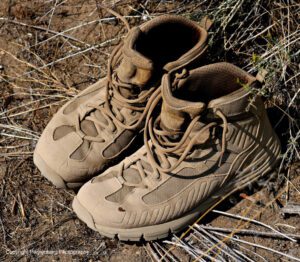
These Danner Fullbore Coyote Hot boots are my favorite hot weather/desert hikers. The are uninsulated and not waterproof.
Pat S. Panty hose liners, or sock liners do wonders on long hauls under adverse weather conditions. I spent plenty of time in the north country with the 10th Mountain and plenty of cold nights in the mountains. Gotta agree with Mark, foot powder-even baking soda in a pinch anything which will draw out moisture, rotating your socks even if you’re shoving one set against your chest to dry out and another set to hike in. Dry feet with pressure points will cause blisters just as fast as anything else. My rule (On buying boots) is a half size to a size larger to accommodate my foot once it’s been moving a bit. People are so often in the wrong size boot or shoe and that causes it’s own problems.
Do you need waterproof boots?
Not fan of it, not a believer of it.
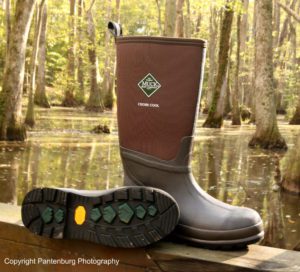
I wear these knee-high waterproof boots extensively during the fall when canoeing and hunting in the Deep South.
A liner is added friction in the long run feet need to breathe. It’s marketing I guess, but for guys who actually go in the bush we know a few things. Use quality and correct footwear and that shouldn’t be an issue. Correct socks and insoles, then changing out socks throughout the day. Best shoes, and boots I’ve owned have been made of quality leather, that are fitted correctly. Feet swell and sweat. Understanding your feet and their tendencys will save a ton of headache. I will treat my leather boots and shoes with wax or spray.
Please click here to check out and subscribe to the SurvivalCommonSense.com YouTube channel – thanks!

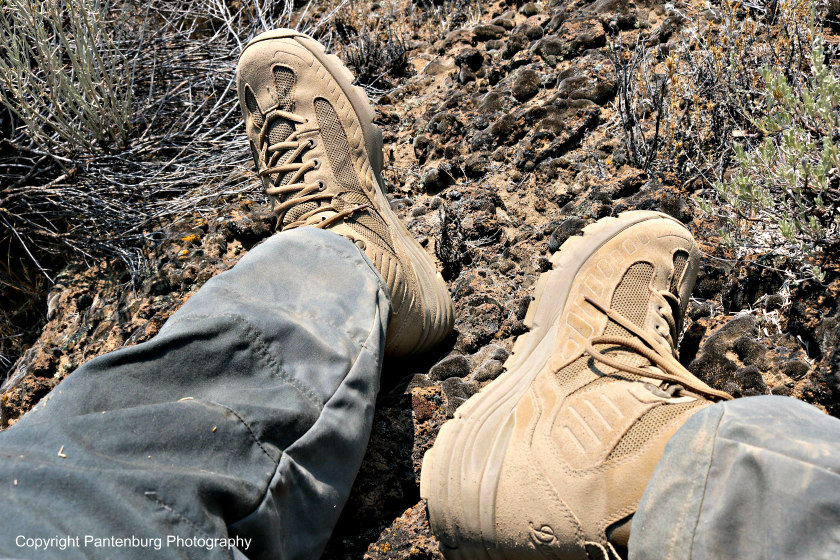

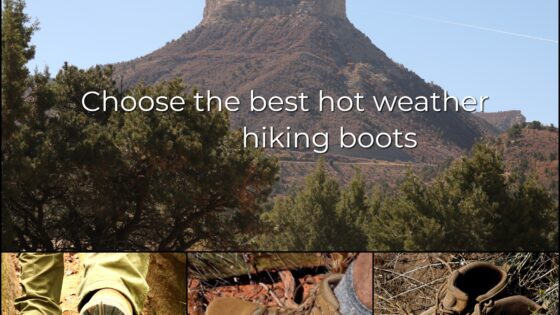
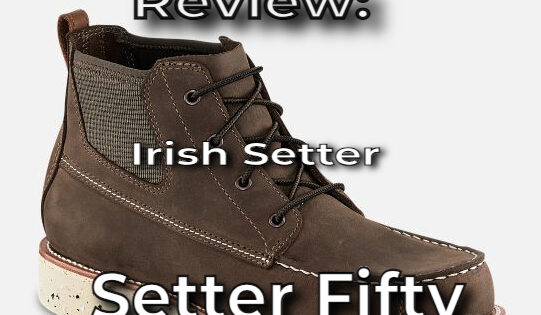
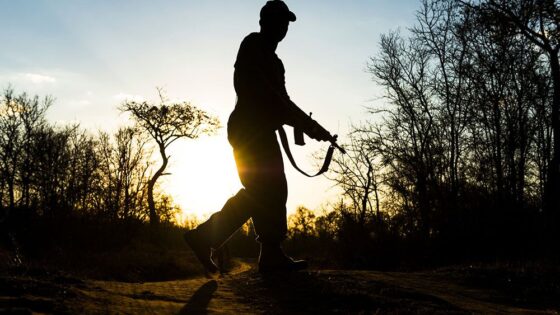
Leave a Reply